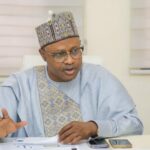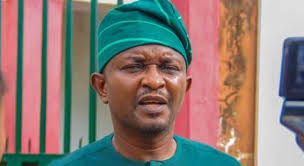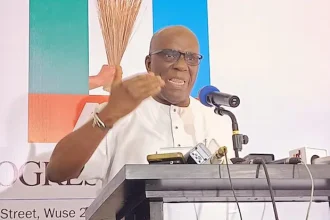The dispute over minimum wage between Nigeria’s major political parties, the All Progressive Congress and Peoples Democratic Party, has reached a boiling point.
While the PDP is advocating for a minimum wage of N120,000, the APC-led government is proposing N60,000.
This stark contrast has led to a nationwide strike led by organized labour groups, including the Nigeria Labour Congress and the Trades Union Congress.
The strike has brought government offices, airports, schools, and hospitals to a standstill, while electricity and water supplies have been disrupted.
The PDP accuses the APC of insincerity in negotiations, arguing that the government has the means to afford the higher wage.
The situation reflects broader economic and political tensions within the country.
Nigeria’s political landscape has been gripped by a contentious debate over the minimum wage, with the All Progressive Congress and Peoples Democratic Party at odds over the proposed amount.
The PDP is advocating for a minimum wage of N120,000, while the APC-led government is proposing N60,000.
This stark contrast has led to a nationwide strike led by organized labor groups, including the Nigeria Labour Congress and the Trades Union Congress. The strike has brought government offices, airports, schools, and hospitals to a standstill, while electricity and water supplies have been disrupted. The situation reflects broader economic and political tensions within the country.
The PDP accuses the APC of insincerity in negotiations, arguing that the government has the means to afford the higher wage. This sentiment is echoed by the labor unions, who believe that the government’s proposal is inadequate and unfair to workers. The APC, on the other hand, maintains that the proposed wage is reasonable and within the country’s economic means.
The dispute highlights the deep-seated divisions within Nigeria’s political and economic systems. The PDP’s proposal for a higher minimum wage reflects its commitment to improving the standard of living for workers and addressing the country’s widening income inequality. The APC’s proposal, on the other hand, reflects its focus on fiscal responsibility and the need to balance the country’s budget.
The strike has significant implications for the country’s economy and social stability. If the dispute is not resolved, it could lead to further economic instability and social unrest. The government and labor unions must work together to find a solution that addresses the concerns of all parties involved and ensures a fair and sustainable minimum wage for Nigerian workers.






